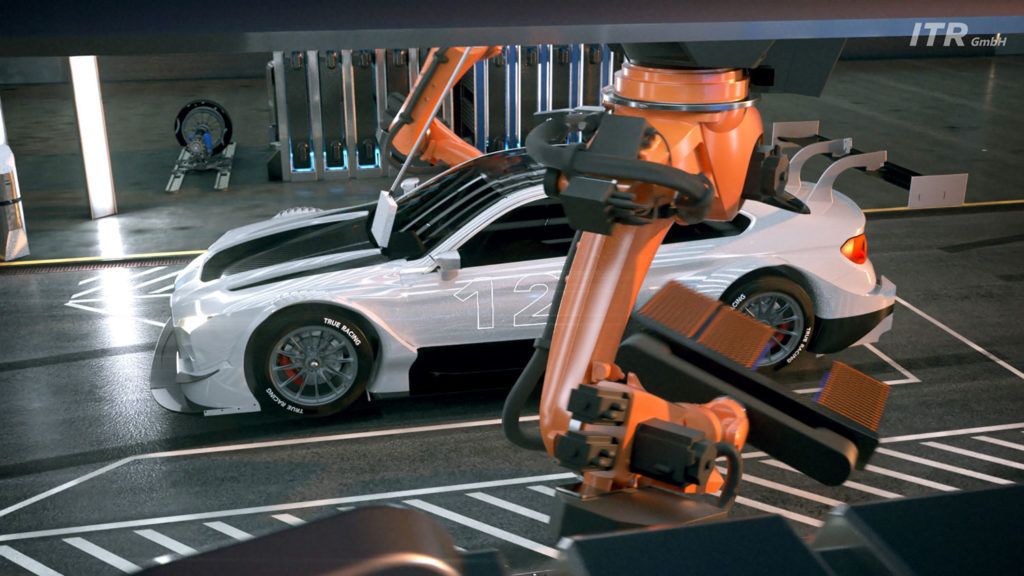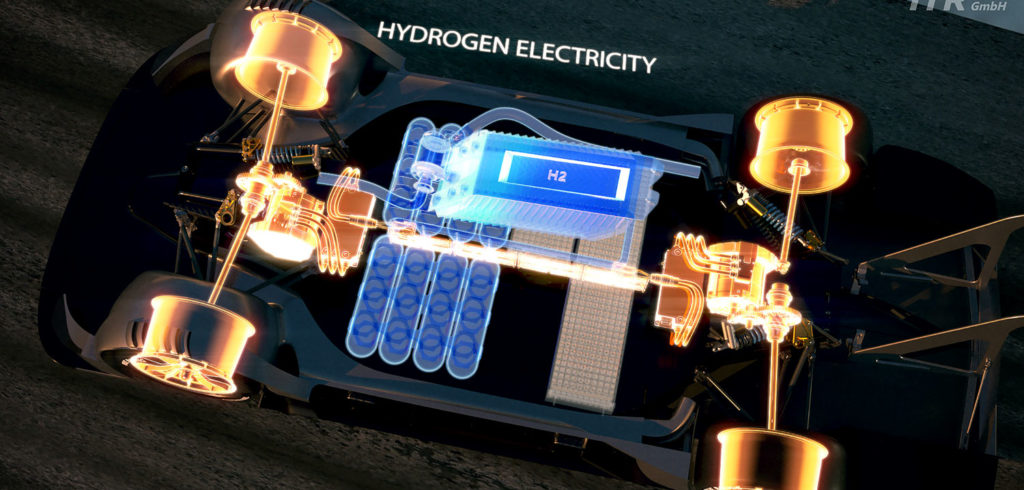The DTM has become the latest Touring Car series to unveil a concept for an electric championship, revealing a radical design featuring cars with 1,000bhp powertrains and robot pit crews.
According to DTM promoter the ITR, the electric series concept represents a quantum leap for motorsport and one that involves significant technical and organizational challenges – a “spectacular conceptual vision of how touring car racing could evolve, using electric vehicles powered by battery or hydrogen fuel-cell technology”.
The concept anticipates an extreme performance drivetrain, with a power output that could be boosted to a peak of 1,000bhp for short periods, enabling the race cars to achieve top speeds of 300km/h (185mph).
Such figures would require the car’s power source to be replaced during the course of a 40-minute race. This would be achieved by utilizing industrial specification robots in the pit lane to both change all four tires on the car and either a battery pack or hydrogen fuel tank, in similar times to a typical pit stop today.
The ITR is developing the feasibility study with several of its key suppliers and would anticipate initially launching the electric series as a supporting category to the current DTM.
Developers of the concept admit that the technology required would only be feasible by making use of a single-source supplier. Much of the drivetrain would be standardized for all competitors, including the electric motors, electronics and either a battery pack or a hydrogen fuel cell.
The ITR adds that the series would prove attractive to manufacturers because they could enter cars that resemble their road-going models, adding that this is an option that current all-electric race series don’t currently permit.
However, the ETCR series, created by the global TCR touring car category promoter WSC and set for launch in 2020, would also claim to address this requirement, as it will use standard TCR race cars incorporating specification electric drivetrains.
ITR Chairman Gerhard Berger describes the concept as “courageous and innovative” and admits that to become a reality it would need to be technically feasible and financially viable and attract the interest of manufacturers, sponsors and spectators.
“It is obvious that manufacturers who want to become involved in motorsport are increasingly focusing on alternative drive concepts,” Berger said.
“You have to look far ahead if you want to shape the future of the sport. Although hybrid and electric vehicles have established a foothold in the market, I think that a truly new and inspiring concept has been lacking up until now.”
The ITR is also studying ways of increasing the environmental credentials of the existing DTM series. Trials of a new synthetic fuel are underway while future plans include the potential introduction of hybrid technology in 2022.




